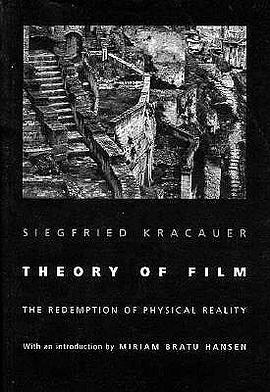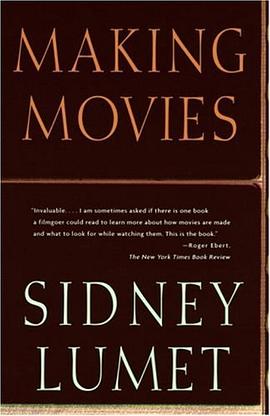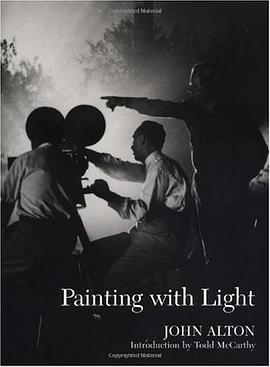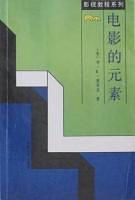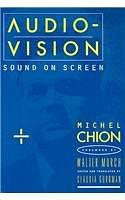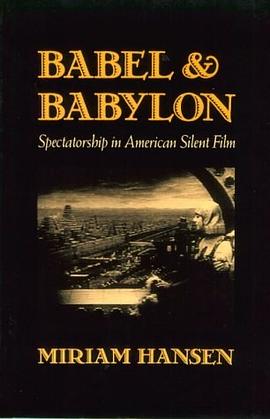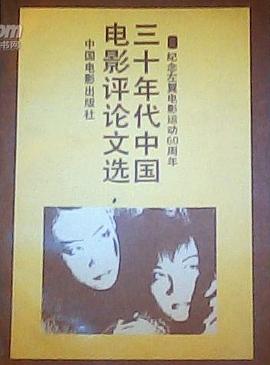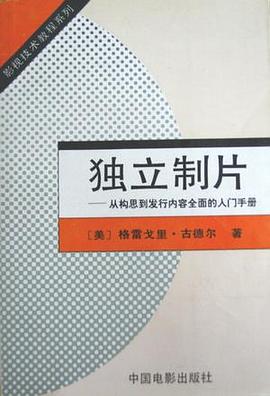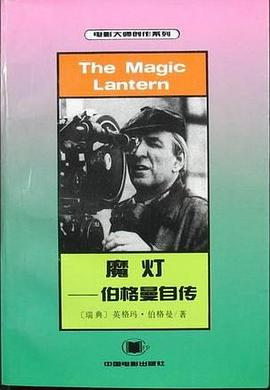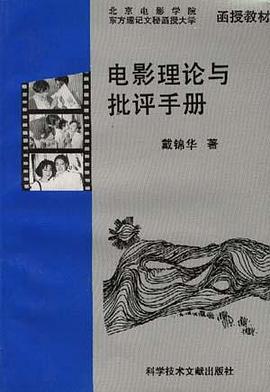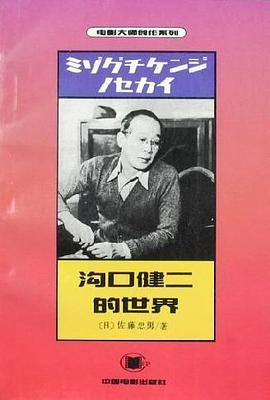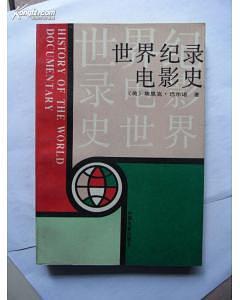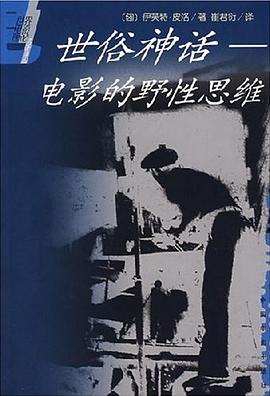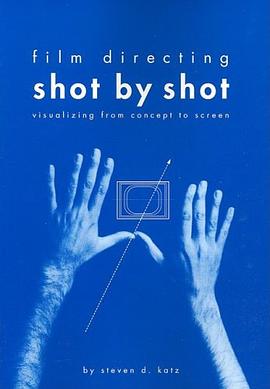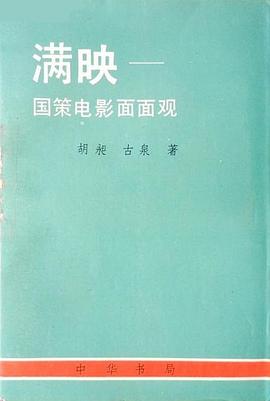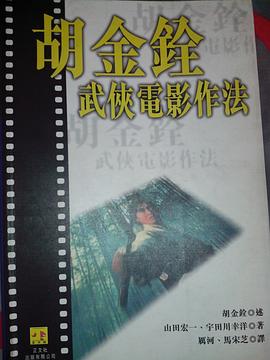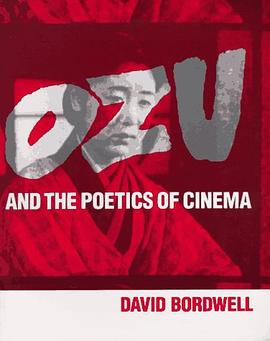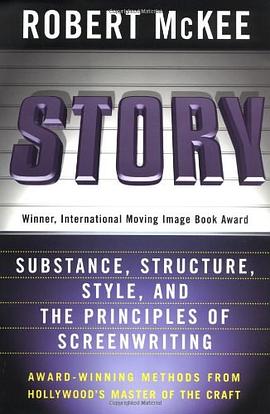

具体描述
Robert McKee's screenwriting workshops have earned him an international reputation for inspiring novices, refining works in progress and putting major screenwriting careers back on track. Quincy Jones, Diane Keaton, Gloria Steinem, Julia Roberts, John Cleese and David Bowie are just a few of his celebrity alumni.Writers, producers, development executives and agents all flock to his lecture series, praising it as a mesmerizing and intense learning experience. In Story , McKee expands on the concepts he teaches in his $450 seminars (considered a must by industry insiders), providing readers with the most comprehensive, integrated explanation of the craft of writing for the screen. No one better understands how all the elements of a screenplay fit together, and no one is better qualified to explain the "magic" of story construction and the relationship between structure and character than Robert McKee.
作者简介
Robert McKee began his show business career at age nine playing the title role in a community theatre production of MARTIN THE SHOEMAKER. He continued acting as a teenager in theatre productions in his hometown of Detroit, Michigan. Upon receiving the Evans Scholarship, he attended the University of Michigan and earned a Bachelor's Degree in English Literature. While an undergraduate, he acted in and directed over thirty productions. McKee's creative writing professor was the noted Kenneth Rowe whose former students include Arthur Miller and Lawrence Kasdan.
After completing his B.A., McKee toured with the APA (Association of Producing Artists) Repertory Company, appearing on Broadway with such luminaries as Helen Hayes, Rosemary Harris and Will Geer. He then received the Professional Theatre Fellowship and returned to Ann Arbor, Michigan to earn his Master's Degree in Theatre Arts.
Upon graduating, McKee directed the Toledo Repertory Company, acted with the American Drama Festival, and became Artistic Director of the Aaron Deroy Theatre. From there he traveled to London to accept the position of Artist-In-Residence at the National Theatre where he studied Shakespearean production at the Old Vic. He then returned to New York and spent the next seven years as an actor/director in various Off-Broadway, repertory and stock companies.
After deciding to move his career to film, McKee attended Cinema School at the University of Michigan. While there, he directed two short films - A DAY OFF, which he also wrote, and TALK TO ME LIKE THE RAIN, adapted from a one-act play by Tennessee Williams. These two films won the Cine Eagle Award, awards at the Brussels and Grenoble Film Festivals, and various prizes at the Delta, Rochester, Chicago and Baltimore Film Festivals.
In 1979, McKee moved to Los Angeles, California where he began to write screenplays and work as a story analyst for United Artists and NBC. He sold his first screenplay, DEAD FILES, to AVCO/Embassy Films, after which he joined the WGA (Writers Guild of America). His next screenplay, HARD KNOCKS, won the National Screenwriting Contest, and since then McKee has had over eight feature film screenplays purchased or optioned, including the feature film script TROPHY for Warner Bros. In addition to his screenplays, McKee has had a number of scripts produced for such critically acclaimed dramatic television series as QUINCY, M.D. (starring Jack Klugman), COLUMBO (starring Peter Falk), SPENSER: FOR HIRE and KOJAK (starring Telly Savalas).
In 1983, McKee, a Fulbright Scholar, joined the faculty of the School of Cinema and Television at the University of Southern California (USC), where he began offering his now famous STORY SEMINAR class. A year later, McKee opened the course to the public and he now teaches the 3-day, 30-hour STORY SEMINAR to sold-out audiences around the world. From Los Angeles (where his course is only taught two times a year) to New York (two times a year) to Paris, Sydney, Toronto, Boston, San Francisco, Helsinki, Oslo, Munich, Singapore, Barcelona and 12 other film capitals around the world, more than 50,000 students have taken the course over the last 15+ years.
Through it all, McKee continues to be a project consultant to major film and television production companies, as well major software firms (Microsoft, etc.), news departments (ABC, etc.) and more. In addition, several companies such as ABC, Disney, Miramax, PBS, Nickelodeon and Paramount regularly send their entire creative and writing staffs to his lectures.
In 2000, McKee won the prestigious 1999 International Moving Image Book Award for his best-selling book STORY (Regan Books/HarperCollins). The book, currently in its 32nd printing in the U.S. and its 19th printing in the U.K., has become required reading for film and cinema schools at such top Universities as Harvard, Yale, UCLA, and USC, and was on the LOS ANGELES TIMES best-seller list for 20 weeks.
目录信息
读后感
我们大概多少都读过教育部引进翻译的国外教材,当时可能不以为然,现在想想,似乎理解内容没有遇到什么障碍。反观周铁东先生翻译的《故事》,简直莫名其妙。请问Reason,翻译成“理由”和“原因”能表述同样意思吗?我都不提那些硬着头皮意译的所谓专业名词,提它们算我欺负你...
评分(全文7100字,慎入!《故事》精华全在此了。) 罗伯特·麦基(Robert McKee)的《故事》一书,主要是针对电影编剧而写的,是他数十年开办、教授“故事”培训班的经验结集。 罗伯特·麦基,1941年1月30日出生于底特律,编剧。从小热爱戏剧,早年做过演员。1981年,麦基受美国南...
评分我不相信有谁看了《故事》之后就可以编写出好剧本,毕竟,编出好故事,不是一本书能够解决的,而且也难以速成,但我相信,读完这本书,再看电影时,视点会不一样,因为你可以站到编剧、故事的视点,去看同一部电影,你可以分析它、穿透它,从中所获得的,就超过一个普通的观众...
评分这本书号称美国电影界编剧的《福音书》。我读了之后,发现西方人对『讲故事』这一行为的研究的确已经达到一个相当先进的地步,其理论已经相当系统化,形成一种专门针对观众心智的故事设计模式。而正是这种故事理论和设计模式,支撑了整个好莱坞的工业式运作,在漫长的历史中屡...
评分1,讲述怎么有效 2,讲述的事永恒,普遍的形式,但不是公式 3,讲述的是原型,而不是陈规俗套 4,讲述的是全面彻底,始终如一,而不是捷径 5,讲述的是现实 6,精通这门艺术,而不是去揣摩市场 故事要领 :伟大的故事总是具有现实意义,能在长时间里不断获得新解释,因为其中...
用户评价
《Story》这本书,它是一部能够触及灵魂的作品。作者的笔触非常细腻,他能够将那些最隐秘的情感,最微妙的心灵变化,描绘得淋漓尽致。我常常在阅读的过程中,为书中人物的遭遇而感到心痛,为他们的坚持而感到震撼。我尤其喜欢书中关于“成长”的描绘,它并没有将成长描绘成一个一蹴而就的过程,而是强调了成长中的每一次阵痛,每一次蜕变。我感觉我能够感受到书中人物在成长中所经历的迷茫、痛苦与坚持,仿佛他们的经历就是我自己的写照。书中的人物塑造得非常饱满,他们并非简单的善恶符号,而是充满了人性的复杂与矛盾。我能够理解他们的挣扎,也能感受到他们的希望。尤其是那个在逆境中不断寻求突破的青年,他的成长历程让我深受鼓舞。这本书让我明白,成长并非一帆风顺,而是充满了挑战与机遇。我迫不及待地想把这本书推荐给每一个正在经历成长的朋友,让他们也能从这本书中找到属于自己的力量。
评分《Story》这本书,它不仅仅是一本小说,更像是一次心灵的洗礼。作者的文字功底非常深厚,他能够用最朴实无华的语言,描绘出最深刻的情感,最动人的画面。我常常在阅读的过程中,被书中那些充满哲理的语句所打动,它们仿佛是作者用生命写下的感悟。我尤其喜欢书中关于“爱”的解读,它没有将爱描绘成一种浪漫的幻想,而是强调了爱中的责任、付出与牺牲。我感觉我能够感受到书中人物之间那种深沉而又坚韧的爱,它穿越了时间与空间,连接了每一个人的心灵。书中的人物塑造得非常真实,他们并非完美无瑕,而是充满了人性的弱点和优点。我能够理解他们的痛苦,也能分享他们的喜悦。尤其是那个在困境中依然选择善良的年轻人,他的品格让我敬佩。这本书让我明白,真正的力量并非来自于外表的强大,而是来自于内心的坚持与善良。我迫不及待地想把这本书推荐给每一个渴望理解“爱”的意义的人,让他们也能从这本书中感受到这份温暖与力量。
评分天哪,我简直不敢相信我竟然读完了《Story》!这本书就像是一场穿越时空的奇幻冒险,每一个章节都让我心跳加速,欲罢不能。从一开始,我就被作者描绘的那个充满神秘色彩的世界深深吸引。那个古老的城镇,那些隐藏在巷弄深处的古老传说,以及那些拥有着不为人知秘密的人物,都仿佛活生生地呈现在我眼前。我能感受到空气中弥漫的古老气息,听到风吹过残破城墙的低语。作者在细节上的描写简直是登峰造极,无论是人物的面部表情,还是场景的光影变化,都刻画得栩栩如生。我尤其喜欢书中关于“时间裂痕”的设定,这种超乎寻常的概念,将现实与虚幻巧妙地融合在一起,让整个故事充满了未知与惊喜。我迫不及待地想知道,那些被困在时间裂痕中的灵魂,最终是否能够获得解脱?而主角,那个看似平凡却拥有着非凡力量的年轻人,又将如何面对他命中注定的挑战?书中的每一次转折都出乎我的意料,让我一次又一次地猜测接下来的发展,但无论我如何努力,都猜不透作者那深邃的构思。我感觉自己就像一个身临其境的旅人,在这本《Story》的书页中,与主人公一同经历了无数的艰辛与蜕变。每一个角色的塑造都饱满而立体,他们不再是简单的符号,而是拥有着自己的情感、欲望和挣扎的鲜活生命。我能理解他们的痛苦,也能分享他们的喜悦。尤其是那个曾经失去一切,却从未放弃希望的老者,他的智慧和毅力深深地打动了我。这本书不仅仅是一个故事,更像是一种生命的启示,让我开始重新审视自己的人生,思考存在的意义。我感觉自己在这本书中,找到了一个全新的自我,一个更加勇敢、更加坚韧的自我。我迫不及待地想把这本书推荐给每一个热爱故事的人,让他们也一同踏上这段令人难忘的旅程。
评分说实话,《Story》这本书,我花了很长时间才完全消化。它不是那种可以轻松读完的书,它需要你投入思考,需要你用心去感受。作者的文字功底非常深厚,他能够用最精炼的语言,描绘出最生动的画面,最深刻的情感。我尤其被书中关于“记忆”的探讨所吸引,它提出了一个非常有趣的概念——记忆是否会随着时间而改变,是否会被情感所扭曲?我感觉我脑海中的一些模糊的记忆,似乎在阅读这本书的过程中,变得更加清晰,也更加真实。书中的情节设计环环相扣,每一个细节都隐藏着深意,让你在不经意间发现故事的真相。我喜欢作者在叙事中运用到的那种“留白”技巧,它让读者有足够的空间去想象,去填补,从而更加投入到故事中。我感觉我仿佛成为了故事的一部分,与主人公一同经历着他们的悲欢离合。这本书让我对“真实”有了更深的理解,它并非只有一种形式,而是可以有多种多样的解读。我迫不及待地想和我的朋友们分享这本书,让他们也一同踏上这场关于记忆与真实的探索之旅。
评分我怎么形容《Story》这本书呢?它就像一部精心打磨的钻石,每一个切面都闪烁着智慧的光芒。作者的叙事技巧简直是神乎其技,他能够将复杂的情感和深刻的哲学思考,用最简单、最直接的方式呈现出来,却又引人入胜,让人回味无穷。我特别欣赏作者对人物心理的细腻描绘,他能够深入到人物的内心深处,挖掘他们最隐秘的情感,将他们的喜怒哀乐,他们的彷徨与坚定,一丝不苟地展现在读者面前。我仿佛能够听到主人公内心的呐喊,感受到他们每一次呼吸的沉重。书中的每一个对话都充满了深意,看似随意,实则句句珠玑,都在为故事的发展埋下伏笔,或者揭示人物的内心世界。我读到了一些非常触动人心的段落,它们让我停下来,反复咀嚼,思考其中的含义。例如,关于“失去”与“获得”的辩证关系,作者用了一个非常巧妙的比喻,让我茅塞顿开。我感觉自己在这本书的影响下,对很多问题都有了全新的认识。这本书不仅仅是在讲一个故事,更是在引导读者去思考,去探索,去发现。我特别喜欢作者对“命运”的解读,他并没有将命运描绘成一种不可抗拒的力量,而是强调个体的选择和努力在其中的重要性。这让我感到充满了希望和力量。我迫不及待地想和我的朋友们分享这本书,让他们也能感受到这种思维的冲击,这种心灵的洗礼。我相信,《Story》这本书将会成为我书架上永恒的经典。
评分《Story》这本书,它在我心中留下了深深的印记。作者的笔触非常细腻,他能够将那些极其微小的情感波动,那些不易察觉的内心变化,描绘得入木三分。我常常在阅读的过程中,为书中人物的遭遇而感到心痛,为他们的坚持而感到欣慰。我尤其喜欢书中关于“选择”与“命运”的讨论,作者并没有简单地将两者对立起来,而是强调了它们之间的相互作用。他告诉我们,即使面对既定的命运,我们依然有权利做出自己的选择,并且这些选择会影响我们未来的走向。我感觉我仿佛站在了人生的十字路口,开始认真思考我所做的每一个决定。书中的每一个人物都充满了人性,他们有优点,也有缺点,有光辉,也有阴影。我能够理解他们的挣扎,也能够感受到他们的渴望。尤其是那个在黑暗中寻找光明的孩子,他的坚持让我感动。这本书让我明白,即使在最艰难的时刻,也不要放弃希望,因为希望本身就是一种强大的力量。我迫不及待地想把这本书推荐给每一个在人生道路上感到迷茫的人,让他们也能从这本书中找到前进的勇气和方向。
评分《Story》这本书,我必须承认,它是一次非常独特且令人难忘的阅读体验。它不像我之前读过的任何一本书,它有一种魔力,能够将你牢牢地吸引住,让你忘记时间,忘记周围的一切。作者的想象力简直是天马行空的,他构建了一个如此宏大而又细节丰富的世界,让我仿佛置身其中,亲身经历着一切。我被书中描绘的那些奇特的生物,那些隐藏在未知地域的神秘文明所深深震撼。尤其是关于“共鸣之石”的设定,它将自然界的力量与人类的情感联系起来,创造出一种令人惊叹的魔法系统。我感觉我能够感受到那些石头发出的微弱震动,仿佛它们在与我的内心产生共鸣。书中人物的成长历程,他们的蜕变,也让我深有感触。他们并非生来就是英雄,而是在一次次的挑战和磨难中,逐渐强大起来,最终找到了自己的价值。我特别喜欢那个在逆境中不屈不挠的少女,她的勇气和决心,激励着我。这本书让我重新思考了“勇气”的含义,它不仅仅是无畏,更是在恐惧面前依然选择前进。我感觉自己在这本书的影响下,变得更加勇敢,更加自信。我迫不及待地想把这本书推荐给每一个渴望冒险、渴望成长的人,让他们也一同体验这份奇妙的旅程。
评分我必须承认,《Story》这本书,它是一场关于想象力与现实的盛宴。作者的文字如同拥有魔力,能够将那些虚幻的场景,那些不可思议的情节,描绘得栩栩如生,仿佛触手可及。我被书中描绘的那些超乎寻常的科技,那些对未来的大胆设想所深深吸引。我尤其喜欢书中关于“人工智能”的探讨,它提出了一个非常深刻的问题——当科技发展到极致,人类的意义又将何去何从?我感觉我仿佛置身于一个充满未知与可能性的未来世界,开始认真思考科技与人性的关系。书中的情节跌宕起伏,每一次科技的突破都带来了新的希望,也带来了新的挑战。我喜欢作者在叙事中运用到的那种“哲学思辨”的技巧,它让故事充满了深度,也让读者在享受阅读的同时,能够引发更深层次的思考。我感觉我仿佛成为了一名探索者,与主人公一同揭开未来的面纱,并为人类的命运而感到担忧。这本书让我对“未来”有了更深的理解,它并非遥不可及,而是与我们今天的选择息息相关。我迫不及待地想和我的朋友们分享这本书,让他们也一同踏上这场关于科技与未来的激动人心的探索之旅。
评分我必须承认,《Story》这本书,是一部让我从头到尾都沉浸其中的杰作。作者的想象力简直是无穷无尽的,他构建了一个如此丰富多彩的世界,让我仿佛置身其中,亲身体验着一切。我被书中描绘的那些奇幻的地理景观,那些神秘的文化习俗所深深吸引。我尤其喜欢书中关于“时间之流”的设定,它将时间的流逝与个人的情感体验巧妙地结合在一起,创造出一种令人着迷的叙事方式。我感觉我能够感受到时间的缓缓流淌,也能感受到时间在不同人心中的不同意义。书中的情节跌宕起伏,每一次转折都充满了惊喜,让我对接下来的发展充满了期待。我喜欢作者在叙事中运用到的那种“多线叙事”的技巧,它让故事更加丰富,更加立体,也更加引人入胜。我感觉我仿佛成为了一个旁观者,能够同时观察到不同人物的命运走向,并为他们的人生发展而感到牵挂。这本书让我对“生活”有了更深的理解,它并非只有一种固定的模式,而是充满了无限的可能性。我迫不及待地想和我的朋友们分享这本书,让他们也一同踏上这场关于时间与生活的奇妙探索之旅。
评分我不得不说,《Story》这本书,它是一次非常震撼的阅读体验。作者的叙事能力简直是出神入化,他能够将一个看似普通的故事,描绘得如此引人入胜,如此发人深省。我被书中描绘的那些社会问题,那些人性的复杂所深深触动。我尤其喜欢书中关于“公平”的探讨,它提出了一个非常尖锐的问题——在不公平的世界里,我们应该如何坚持自己的原则?我感觉我仿佛置身于一个充满矛盾的世界,开始认真思考我所处的环境以及我应该扮演的角色。书中的情节设计巧妙而又引人深思,每一个人物的选择都充满了戏剧性,让我对他们的命运感到好奇。我喜欢作者在叙事中运用到的那种“意想不到的转折”的技巧,它让故事充满了惊喜,也让读者在不知不觉中陷入思考。我感觉我仿佛成为了一个参与者,与主人公一同面对着生活中的各种挑战,并为他们的最终命运而感到担忧。这本书让我对“社会”有了更深的理解,它并非一成不变,而是需要我们每一个人的努力去改变。我迫不及待地想和我的朋友们分享这本书,让他们也一同踏上这场关于社会与人性的深刻反思之旅。
评分图解很有用,不是纯文字,作为图解狂人感觉好爽。。
评分超好的。不过还是无法同卖基老师一样坚信“故事的重要性”。
评分不算是什么还让人震惊/惊喜的道理 但字字句句都非常中肯靠谱
评分003
评分中文版翻阅无数次了 但是翻译之烂有些地方真的别扭到狗屁不通 直接导致我无法理解mckee先生的见地啊!! 那天iask上看到了英文原版 果断dang之 又极厌电子版 又破费将之打印 现在摸着还温热的400页心里那个激动!!
相关图书
本站所有内容均为互联网搜索引擎提供的公开搜索信息,本站不存储任何数据与内容,任何内容与数据均与本站无关,如有需要请联系相关搜索引擎包括但不限于百度,google,bing,sogou 等
© 2026 book.quotespace.org All Rights Reserved. 小美书屋 版权所有

